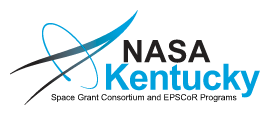Some teaching materials I have developed for a college Introductory Astronomy course at Thomas More University aimed at developing the data and programming skills of first- and second-year students. Raw datasets are available in this repository and are also available on Kaggle.
More info is available in README files in each directory/folder.
This course is under development in the Spring 2024 semester. More info TBA
Please see the StartHere folder to get started. It contains an outline of the course content.
Data from the Gaia Space Telescope[1] has revolutionized the astronomy community's understanding of our Milky Way Galaxy [2] thanks to its observations of billions of stars, but relatively little has been written on the tremendous opportunity to use Gaia data in the introductory classroom as an inclusive way of preparing future scientists. Indeed, the Gaia data is freely available and presents an excellent opportunity to introduce programming and data science to all students, regardless of intended major, socioeconomic background, etc. Perhaps more importantly, a course centered on astronomy and Gaia data with absolutely no prerequisites can help to catch aspiring scientists who may not otherwise be introduced to the skills and opportunities they need to participate in the high-impact practice of undergraduate research.
In fact, it has been known for some time that first-generation college students are less likely to seek out opportunities like undergraduate research projects [3], likely because their parents do not have the first-hand experience and are less likely to recommend such activities [4]. One potential remedy is the Course-based Undergraduate Research Experience (CURE) [4]. Introductory-level courses which follow the CURE model can help to make research more inclusive and act as a launchpad to facilitate further involvement in undergraduate research [4]. Throughout courses of this type, instructors can help students develop the skills necessary for research, repeatedly remind students of research opportunities, detail how to get involved, and encourage students to consider undergraduate research as a critical part of an undergraduate education [5].
Moreover, racial and ethnic minorities -- and particularly women -- are over-represented in first-generation college students [6], and list a lack of research experience as the second biggest barrier to applying to graduate school in physics [7], so it is absolutely vital that there are courses which prepare all students for such an important experience. Indeed, while undergraduate research experiences raise the career ambitions and confidence levels of young, minority scientists [8], the intervening time between high school and typical undergraduate research experiences is the point of maximal attrition [9, 10]. With earlier, course-based research experiences shown to increase retention and graduation rates [11], the pairing of such an approach with a broadly popular astronomy general education course stands out as an excellent starting point. In particular, a data science component in such a course offers students the chance to develop widely-applicable skills, as data analysis is necessary for any form of science [12] and many modern jobs.
This open-source repository of course material was created with support from the following:
- This material is based upon work supported by NASA Kentucky Space Grant Consortium under NASA award 80NSSC20M0047
- Thomas More University
All software is available under an MIT License, while all of my course materials are available under a CC BY-NC 4.0 license unless otherwise noted.
